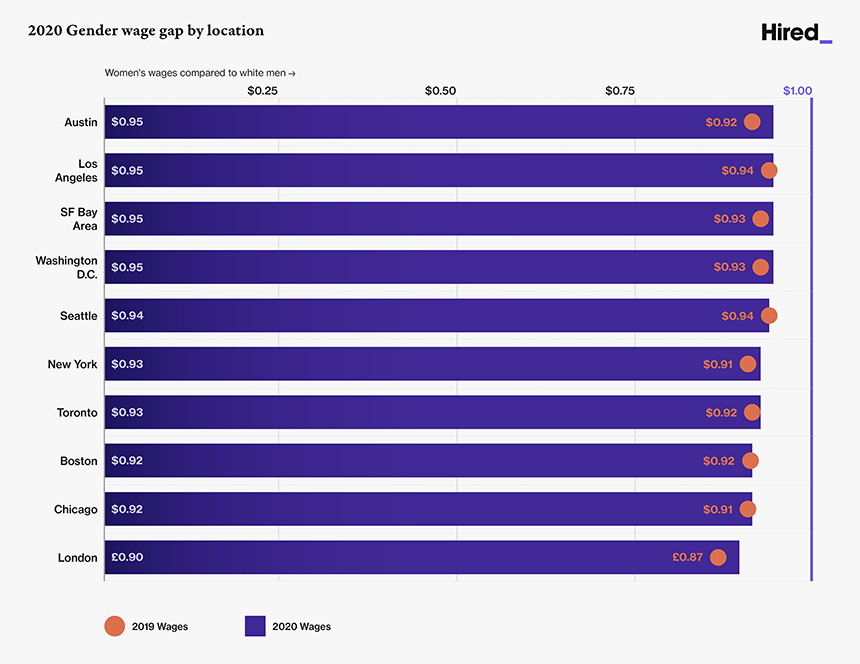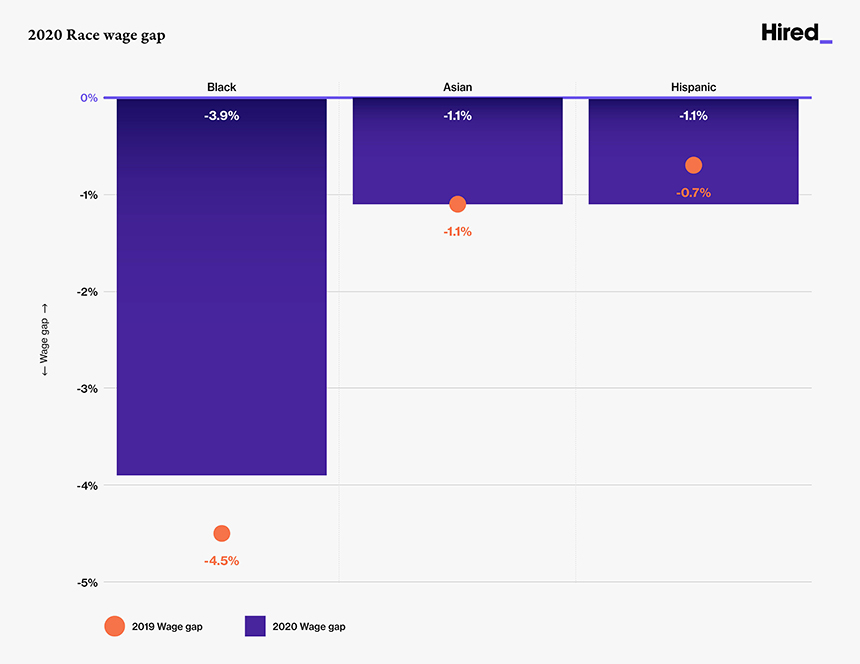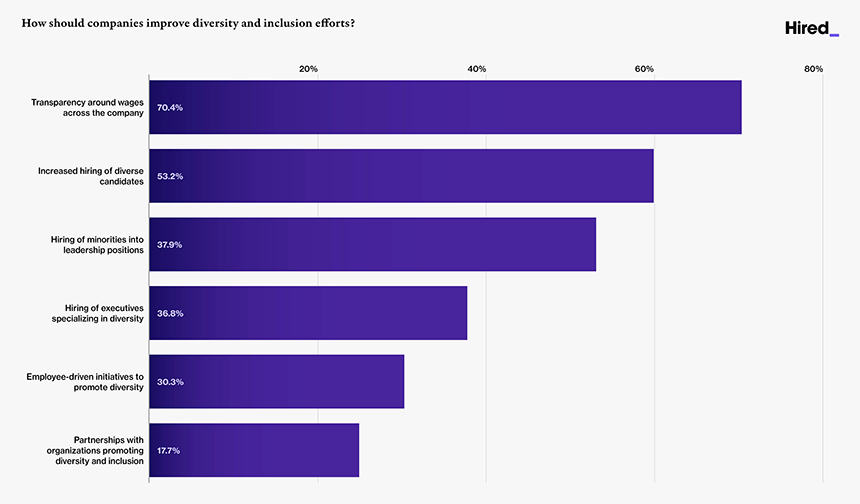While the wage gap is narrowing, unequal pay and discrimination persist for underrepresented talent in tech, according to a new study.
Men were offered higher salaries than women for the same job title at the same company 59% of the time in 2020, compared to 65% in 2019, revealed Hired. The fifth annual report, from the AI-driven hiring platform, analyses wage inequality and discrimination based on gender, sexuality, race, age and non-traditional educational backgrounds in the tech industry.
SALARY EXPECTATIONS
The 2021 report found that companies offered women on average 3% less than men for the same roles in 2020; compared to 4% in 2019. Over the same period, the average expectation gap decreased from 6% in 2019 to 3% in 2020. Additionally, 57% of women report experiencing discrimination in the hiring process compared to 36% of men.
Although certain markets have more work to do than others when it comes to narrowing the gender wage gap in tech; all showed women are consistently offered less than men, the report confirmed. In London, for example, the gender wage gap in tech remains at 10%; whereas it’s down to 5% in the San Francisco Bay Area. Most markets are in between these extremes; with Chicago and Boston at 8%, New York and Toronto at 7% and Seattle at 6%.

PAY TRANSPARENCY
Two-thirds of tech employees also report finding out they were paid less than their counterparts for the same work; of those, over 40% look for new positions. If companies chose to promote transparency earlier on, they’d be saving costs in the long term due to higher employee fulfillment and increased retention, revealed the report.
Tech candidates who are either self-taught or learn through a bootcamp are getting more interviews than those with traditional degrees; but expect salaries that are up to 6% lower than the norm. They are paid less as a result.
RACE & AGE IMPACT
Race contributes significantly to the expectation gap; low wage expectations are most prevalent in minority women compared to White women or minority men. For example, Black women expect salaries that are 10% lower than those of their White male counterparts.
Black candidates saw wages that were 4% lower than the baseline in 2020; compared to a gap of 5% in 2019. By contrast, Asian candidates saw no change, receiving offers that were 1% lower in 2020 and 2019. White employees are less likely to have discovered they were being paid less than a colleague in the same role. On the occasions where they do discover a discrepancy, they receive a salary increase after surfacing the discrepancy 28% of the time. When Black or Hispanic employees surface pay discrepancies, they receive salary increases 20% and 15% of the time, respectively.

Younger employees are more likely to ask for, and receive, more equal wages than in past generations; a trend that has continued year-on-year, the report revealed. When entry-level employees are paid more equitably, it increases their chances of being paid fairly throughout their careers. Continuing to increase wage transparency and reducing the expectation gap for entry-level employees could have a profound, long-term impact on wage inequality as a whole.
IMPROVING DIVERSITY & INCLUSION EFFORTS
Prioritising diversity, equity and inclusion (DE&I) is no longer an option for forward-thinking companies, noted the report. Over 83% of survey respondents said that it was important that their employer takes meaningful steps to promote DE&I. The best way for businesses to show candidates that they are serious about creating an equal workplace is by increasing wage transparency (70.4%); hiring a diverse range of candidates (53.2%); and increasing the diversity of their senior leadership team (37.9%).

VISIBILITY FOR FAIR WAGE
“We continue to see that underrepresented talent who are paid less also expect lower salaries than their White, male counterparts; even if they have the same experience. Our data shows that offering everyone visibility into what a fair wage truly is would make a meaningful impact towards narrowing the wage gap,” stated Josh Brenner, CEO of Hired. “We hope this report can give employers the confidence that increasing salary transparency and narrowing the wage gap is the right thing to do; for both their team and business. Our vision is to build a world where hiring is equitable, efficient and transparent; and with the right commitment from businesses, that goal is achievable.”
The Hired 2021 Impact Report is based on data from Hired’s network of over 10,000 participating companies and more than 245,000 job seekers; as well as survey results from over 2,000 tech employees. To access the full Hired 2021 Impact Report – Wage Inequality in the Workplace, click here. Another recent survey also found that tech industry still has a long way to go to fix inequality and discrimination to attract more diversity. Click here to read more.






































